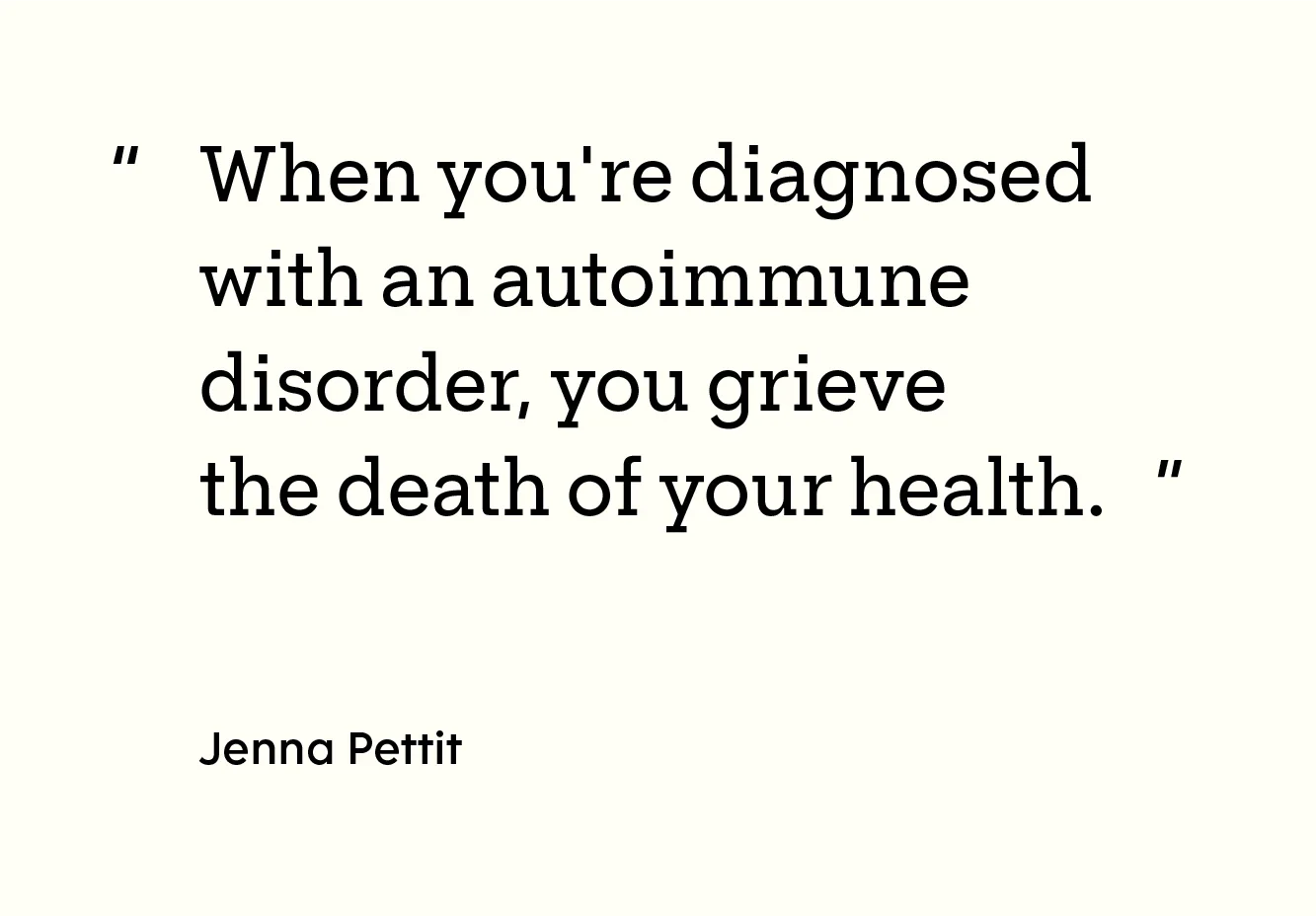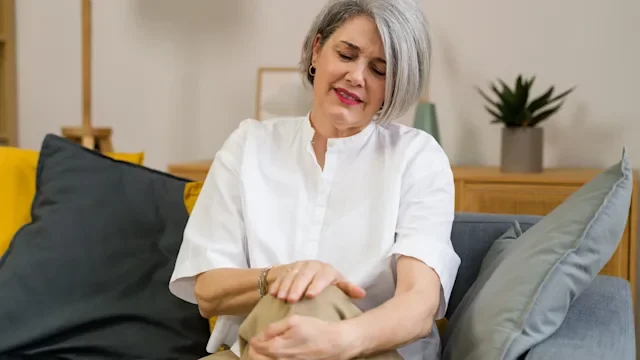Key takeaways:
Jenna Pettit was in her early 20s when she found out she had Crohn’s disease.
While living with the disease has been a challenge, she’s found ways to manage her mental and physical health.
Jenna wants to use her story to help others understand the connection between their minds and bodies.
When her stomach first swelled and a bulge pushed from the right side of her belly, Jenna Pettit thought maybe she was allergic to something.
In October 2015, she couldn’t figure out what could be causing her extreme fatigue, fever, or pain. She was 21 and healthy. But eating became a chore, and her nausea soon became persistent. She quickly lost 15 pounds. And she had to run to the bathroom throughout the night.
“I would literally sleep next to the toilet,” she says now. “The bathroom wasn't even that far. But that's how bad it was.”
As someone who’d always had a high pain tolerance, she says, she knew “there was something actually wrong with me.” She could no longer stay awake through her classes and blisters started to show up in her mouth.
“I’d get these hives,” she says. “My whole body would turn red."
Initially, she says, a caregiver dismissed her pain as “woman problems.” But after seeking emergency help in early 2016, she finally got a diagnosis of Crohn’s disease.


Desperate for relief
The diagnosis started her on a monthslong path full of pills and shots that she had to give herself by pinching her stomach and pushing a needle in.
“I would get lightheaded” when administering the shots, she says. “I hated doing it.”
Jenna, who had an emotionally difficult upbringing and was bullied at school, says she was not only exhausted from the illness, treatments, and pain, but her mental health suffered, too.
“When you're diagnosed with an autoimmune disorder, you grieve the death of your health,” she says. “I became extremely depressed. I felt like I was just slapping a Band-Aid over the issue and calling it a day.”
- EntocortBudesonide
- Azulfidine En-TabsSulfasalazine DR
- Exclusive discountAdalimumab-adbm
She found that the usual course of medications used to treat her symptoms still left her “desperate for relief.”
So, she tried what she calls an “unconventional” approach: stem cell therapy.*
Clinical trials are still studying the effectiveness of using stem cells to modify the body’s immune response to Crohn’s. Jenna says it helped her. But it was expensive. In September 2018, she received her first dose of 30 million umbilical cord blood stem cells. She had a second dose in January 2019. Her insurance, however, did not cover the stem cell infusions. Instead, she used her flexible spending account (FSA) to pay toward the $13,000 cost of the treatment.
For Jenna, the cost was worth it. She says thanks to that treatment, she is in remission.
Finding her mind-body connection
Jenna is now 28, lives in San Diego, and focuses these days on managing her stress, listening to her body, and watching what she eats. In remission, she says, she feels “about 80% normal.” She has a large Instagram following, where she often posts about Crohn’s and her health.
“I've learned to cope” with the everyday challenges, she says. That includes avoiding beer, wine, spicy foods, certain cereals, and acidic foods.
“I have tried to test the limits a bit and just see what I can tolerate,” she says. But “it's not the end of the world if I can't eat spicy food, or if I can't drink beer or wine.”
In various stages of her journey, she’s been able to tolerate eating different things. The most important thing, she says, is to listen to her body and mind, to know when she’s tired, and to know when something doesn’t feel quite right.
Jenna is in graduate school now and dreams of becoming a therapist. She wants most to help people who have chronic illnesses and mental health issues understand the connection between their minds and bodies.
“I feel like one thing that's lacking in the field of psychology is this understanding of the mind-body connection,” she says. She wants to help fill that gap and help people focus on their mental health to be better in tune with the rest of their body.
“I definitely have a really big heart of service,” she says. “My purpose and passion in life is to help people. That's when I feel joy. That's when I feel on cloud nine. That's when I feel my best.”
* Editor’s note: No single treatment works for everyone with Crohn’s. While Jenna chose experimental stem cell therapy to treat her condition, researchers are still studying its effectiveness for Crohn’s and other conditions. The FDA warns that stem cells are not cure-all treatments. Talk with your healthcare provider about the best treatment plan for you.
—
Jenna told her story as part of a partnership between GoodRx Health and MyHealthTeams, which creates social networks for people living with chronic conditions. MyCrohnsandColitisTeam is the social network for people diagnosed with Crohn’s disease and ulcerative colitis. Members share their firsthand experiences, practical tips, and emotional support in a secure online community. Medical experts and specialists share trusted information via articles, videos, and virtual events. MyCrohnsandColitisTeam is free to join and available via mobile app and the web.

Why trust our experts?

















